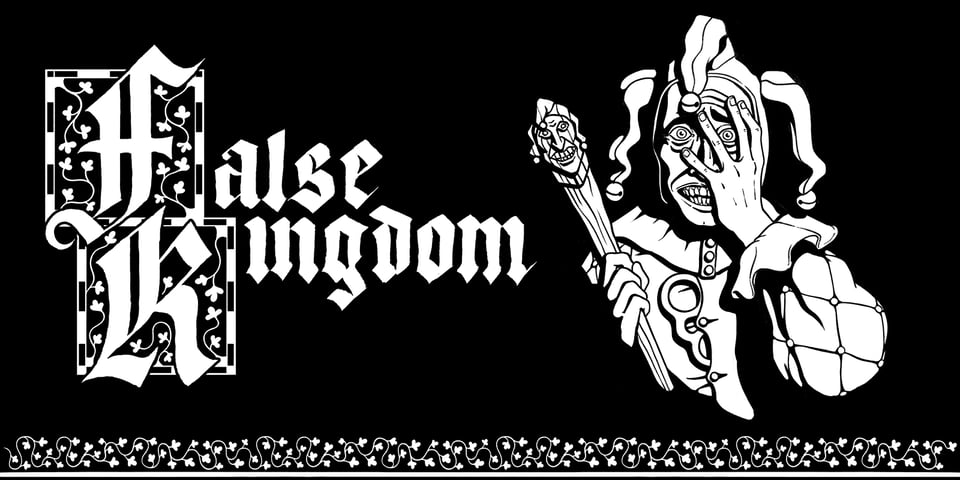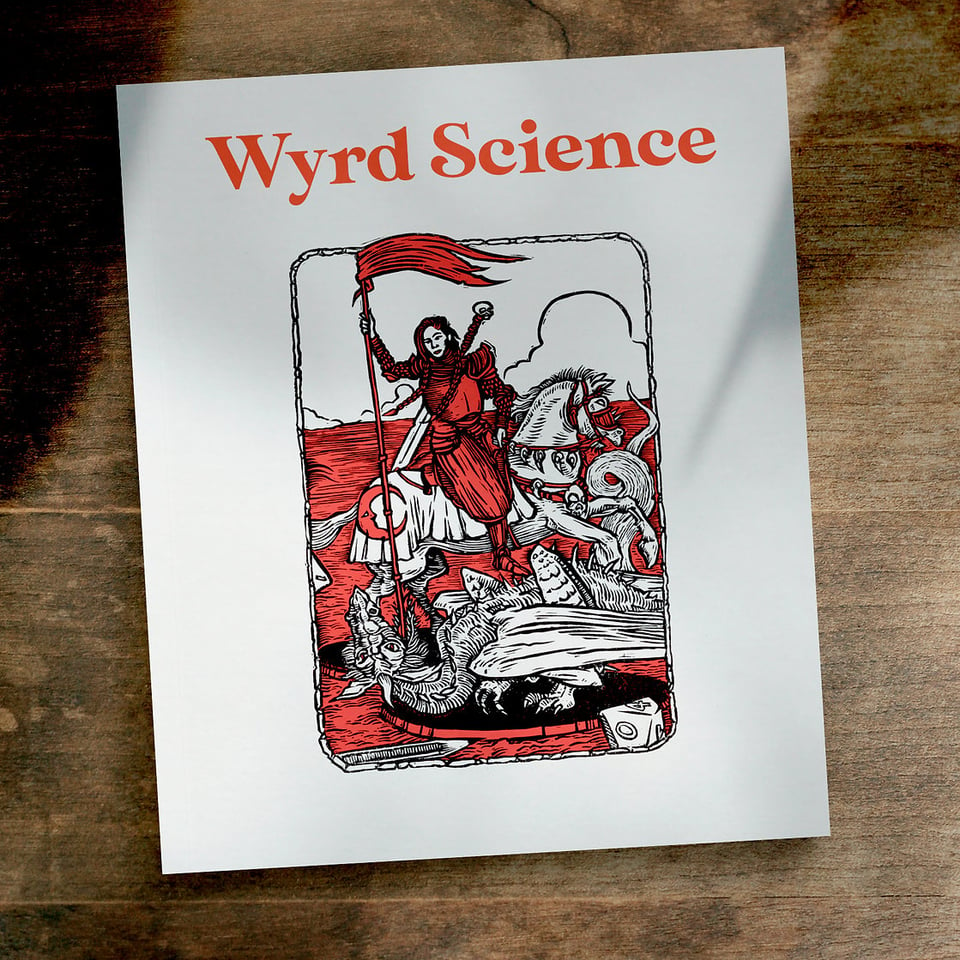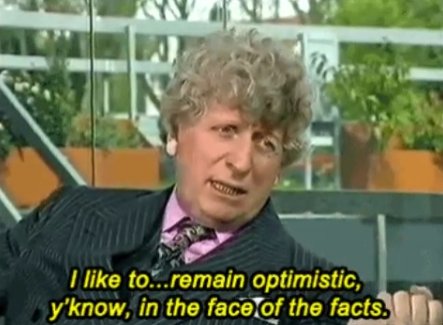Dicebroken: the travails of tabletop media and what to do about it
Welcome to the TEETH newsletter, a regularly irregular transmission about our adventures in the very secret land of Tabletop Roleplaying-Games. We have published a whole series of our own TTRPGs! More games are coming soon. And we shall play many others, and then report on those experiences right here, too.
This newsletter is written and compiled by obnoxious masthead, Jim Rossignol, and meticulous typesetting, Marsh Davies. Come and join us over on the TEETH Discord! Free tooth emojis for everyone.
And hey, for God’s sake, BUY OUR BOOK.
Hello, you.
Links!
Dicebroken: the travails of tabletop media and what to do about it.
Hello, you.
Okay, so last time wasn’t a proper newsletter, it was an announcement that our latest TEETH game, FALSE KINGDOM, is available! Thanks to everyone who picked up our game of medieval treachery and absurdity, and doubly so to all those who shared our work or commented on it. Much appreciated! We’re anticipating more of that to come.
And if you’re enjoying this newsletter and would like to support our ongoing efforts then picking up FALSE KINGDOM for a few dollars certainly helps keep the wolves from the paddock. It’s Pay What You Want, so you can grab it for nothing if things are tight! Either way, you get a 78-page zine of entertaining Marsh & Jim production. And you are welcome to it.
Secondly, I enabled comments on the newsletter. I think it should work now? Maybe? It should have worked for the last one but did not, for reasons mysterious. Hmm! Please use them to, you know, comment.
Thirdly, if you want more reliably immediate chat times, consider the TEETH Discord. And if you are a creator don’t be shy about promoting your own stuff on there, it’s totally cool to do so.
Fourthly, if you are enjoying these newsletters and think you know someone else who might, please share them. We need to grow this thing! And I will be talking about that more, below.
Love,
Marsh & Jim
LINKS!
THING OF THE WEEK: This bundle of the Unfathomable books is tremendous fun, I might write something else about it soon, but in the meantime take a look and judge if it’s your sort of thing. It’s enormously handsome and silly, wildly imaginative and playful: I could see a bunch of people I know getting a kick out of it.
Songs For Dusk looks lovely and just hit 1.0 version. “Songs for the Dusk is a Forged in the Dark science-fantasy tabletop RPG for an MC and 2-5 players. Create a crew of brave and compassionate adventurers called striders, ground them in a community of your own design, and watch as they figure out what it means to build a better future together.”
This video about why one single rule explains the appeal and genius of Mothership is, in itself, a fragment of genius. Did I post it before? Not sure. Watch it anyway!
This isn’t new but there’s a miniature of the original goofy D&D Beholder! I love him so much.
I missed the Kickstarter for Outliers, but I love the idea and the presentation. Fortunately we can still pick up pre-orders.
Our kid Gillen is doing a fancy collected version of his Wicked & The Divine comic to celebrate a decade of the masterpiece bursting into existence. Holy fuck we are getting old, my friend.
A heartwarming story about a central-London D&D pub.

--
Dicebroken: the travails of tabletop media and what to do about it
You might have noticed that tabletop games site Dicebreaker, alongside a number of other websites owned by Gamer Network (including a PC gaming site that I had some involvement in over the years), has now fallen into the hands of corporate behemoth IGN. This has led to the crucial people at Dicebreaker being laid off, and one of the most visible platforms for coverage of tabletop games looking like it’s going to be shuttered for good. Obviously this means nothing positive for the medium, and this ugly corporate house-keeping, combined with the faltering slide into ruin of social media generally, has led to some concerned glances, if not outright wailing and sorrow, from the people on whose lives tabletop gaming depends. For our corner of the universe, the indie RPG and its accoutrements, things look bleaker than ever.
Sad Beholder Situation

Not good. But all is not lost, little Beholder! In the seeds of these calamities we can see what has gone wrong, and perhaps a little of how to fix it. Action is better than lamentation, as my mystic mountaintop mentor once told me as he stirred a steaming cauldron of pragmatism.
The challenge for Dicebreaker, of course, was that it, and many of the other websites owned by Gamer Network, relied heavily on advertising revenues for their operation. The hard nosed business reality will have been that the money brought in from advertising board games and RPG books simply wasn’t enough to pay wages and turn a profit. This isn’t a reflection on Dicebreaker, particularly, it’s about how such a site can pay its expenses based on the narrow margins of this model. (I should note here that RPS does have a subscription option, which I no longer have any idea about the numbers for, but the core engine for paying the staff was, during my tenure at least, via display ads. Video game companies, at least, had advertising budgets that moved the needle. This is less true for the tabletop sector, and doubly so for RPGs.)
Advertising has always been treacherous ground, regardless of the budgets. Revenues go up and down with various trends, and the problematic nature of it is exaggerated for sites containing commentary and criticism: even if you put aside the fact that websites such as these are taking money from the businesses that they are supposedly critiquing the products of (and I can say that it is possible to do so, having had to do it myself) there is the issue that a model that hangs everything on a matter of increasing page impressions faces a downward spiral when it comes to quality.
It’s my belief that this drain is one of the lesser drivers of what folks are calling The Rot Economy: websites all being “for free” (but really about ads and data farming that must always increase in scale) was never healthy, and it brought with it practices that did nothing to exemplify editorial standards or demand higher standards of quality in writing. The logic of this is reaching its sickly conclusion as sites automate content, and Google falls apart. Even more deranged is that we’re now seeing, with the AI guff revolution, that the idea that everything can just be farmed from free has even been built into how Big Tech imagines the world works, with no good consequences for anyone.
So we built the internet wrong. Both economically and socially. That’s going to be tough to mend. But we can support endeavours that are doing it right, and these are, in fact, in abundance in our little corner of the universe. Supporting them, sharing their efforts, and getting more people on board is going to be certain that it continues that way.
Thing 1: People Read Emails
No, they actually do! Numerous creators run their own newsletters (like this one!) but there are some generalist newsletters, too. If you are reading this then you are likely to already be following Thomas Manuel’s consistently reliable Indie RPG Newsletter. Mr Manuel offers links to new games, links to articles and other materials, small ads, and his own thoughts and analysis in and around RPGs. This is always well considered, useful and insightful. If you aren’t subscribed, well, this would be a good time to start. You can also pick up games from Thomas’ own itch store to support the endeavour. If you are an indie creator like us who posts stuff on itch.io, don’t forget that you can submit your work for the regular release round up.
There are some other places you can look, too. Boasting the best logo in the indie RPG newsletter world, The Soloist, a newsletter all about solo and co-op games (GMless stuff, basically), and is just packed with interviews, insights, resources, and links that explore this area in more depth than anyone else I am aware of. Feel free to make me aware if someone is doing better than this! But generally speaking this is high quality newslettering, and everyone should be looking at it.
Thing 2: People Read… Magazines? What?
I heard a version of this a couple of times: “there isn’t a magazine covering tabletop stuff.” Wrong, person who said something like that. Wrong! It’s not their fault, these people, because this stuff just isn’t getting the profile it might. But the truth is there’s a few tabletop ‘zines about, but the most interesting and encouraging remains Wyrd Science. It’s well-designed, witty, and a pleasure to read. Again, there might be something that outdoes this out there in the endless fronds of the publishing diaspora, but I’ve yet to read it. I know that we all got out of the habit of buying physical magazines in the internet era, but actually there’s an age-old trade happening there that we can’t ignore the importance of: you give them money, they give you a well crafted thing to read. It’s a classic transaction. Time-honoured, even. If we want to support tabletop with coin -- and those of us who can afford to should -- then this is a prime example of how. Hell, they even have a bundle deal on right now. Go take a look.

More Things: People Watch Videos
And there’s Youtube. There are a lot of individual channels doing their thing, but, you guessed it, I am going to highlight Quinns’ work, because there is no one quite like him.
I have to disclaim this somewhat and say that Quinns and I have known each other for going on twenty years, so I am a little biased towards promoting his success in this endeavour. But the bias is not simply down to long standing social acquaintance. It’s predicated a little more on the fact that Q’s work is shrewd criticism which builds on the traditions of games magazines in the UK over the past forty years. (Just as Q’s other enterprise, Shut Up & Sit Down, has done.) Sharply written, funny, deftly delivered. This is the quality we deserve!
Video is a jungle of course: there are a lot of Actual Plays, which are definitely not commentary and analysis, and there are myriad videos which talk broadly about RPGs, but these are overwhelmingly dominated by D&D, and Quinns has, bless him, set his stall out in opposition. He’s interested in reviewing TTRPGs, and the ones he wants to shine his outsized beacon of attention on are those which do something other than the dungeons and the halflings. More broadly than that, though, I believe Quinns’ work and success pushes the Overton window of RPG discussion in a particular direction, one that demands to know what else RPGs can do and interrogate what it is they’re trying to do. But it’s the sort of project that requires ongoing support. Quinns’ might be a one man army with a personality as compulsive as the Death Star’s tractor beam, but it’s a force that nevertheless needs to be powered by more than okay views on Youtube, especially if we want to get away from advertising, which is where Patreon comes in.
Even Weirder Still: People Pay For… Websites!?
Yes, direct patronage is going to end up being a significant part of us creating a better future across all aspects of culture and media. If the “everything for free” internet being driven by data and advertising produced the rot, then let it die. This is true across media generally, and it’s why artists — like my chum Ian McQue — have been so vocal in pointing out how crowd-funding and patronage is enabling them to do the work they should be doing, rather than just the work that corporate entities will pay for them to do.
Quinns’ model - the Patreon people get some extra stuff and a warm glow of self-satisfaction, while everyone gets the lean meat of the video - is a good example of how this stuff can work. Right now we don’t have a healthier solution.
In the wider world of criticism and commentary it’s been the conclusion that Aftermath, 404 Media, and RPG’s own Rascal News have drawn, too. And yes, we’re in hard times where the economy is a black hole, but if you can spare a dime or fifty to support to directly support these efforts, then this is how we climb out of the pit. If other stuff is dying, then look for where the future is being born and give it a lollipop for trying.
Much of what happens next will come from the community itself, too: the people who make and play the games we love are the ones who will do the heaviest lifting. TEETH-distributors Soul Muppet stepping into the breach to organise an industry event when the Dicebreaker one folded is just one example of how we’re going to have to fix this ourselves, and all such moves must be supported.
We have to consider this: IGN, as a machine for turning words and videos into page impressions and therefore shareholder value, won’t care if our RPGs get the attention they deserve. Their game is one of Numbers Go Up on a spreadsheet, built on a basis of serve slop to render ads, and nothing else is of value. This means we, the people who make and the people play, all have to promote each other, because the machine will not and cannot. Marsh and I are certainly aware of how difficult this is, and our feeling is that Dicebreaker heading for the actual breakers means the need to ask everyone to put our stuff everywhere is all the more urgent. Twitter, Bluesky, Mastodon, Co-host, Cara, Instagram, down the pub, wherever you are, talk about the stuff you like. Lift it up and show people. Forward them newsletters, like this one, tip creators whose work you enjoy. Share. Dicebreaker’s demise can be a call to action to promote the stuff that means something to you.

Unrealistically Positive Conclusion
Look, I am not saying it’s not fucking shit. It’s awful. People have lost their jobs, lines of communication are being wrecked by corporate fuckery. Social media is a garbage fire. But helplessly jawing about it is one thing, while accepting we have to take it on ourselves is another. I know which I prefer. Hell, there was a dangerous moment when I thought to myself: Fuck it, I’ll just get a generalist tabletop site up and running, it’s not like I haven’t done it before. But no, Jim Rossignol, no. Danger. You have other commitments and far too many of those, and besides, people are already doing the work.
I will use this newsletter to talk more broadly about the games I am reading and running on a regular basis. Marsh and I have turned to talking about what we can do here can be more of a resource and I think the answer is: quite a bit! And if you have suggestions for what you’d like to see then, hell, let us know. I think the newsletter comments should work now?
Oh and Polygon also covers tabletop games, but perhaps not in a way that makes all that much difference to the indie RPG scene. And yes I DO mean this in a catty way because they didn’t cover TEETH. Perhaps it all comes down to the need to push those ad impressions? Winky emoji, my friends.
Until next time! x
-jim

Enjoying the newsletter? Bung us $5 for a copy of FALSE KINGDOM and see things swell and flourish, like you watered a handsome little cactus.
Add a comment: